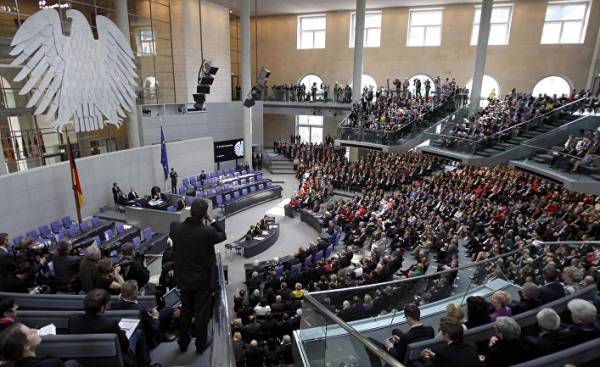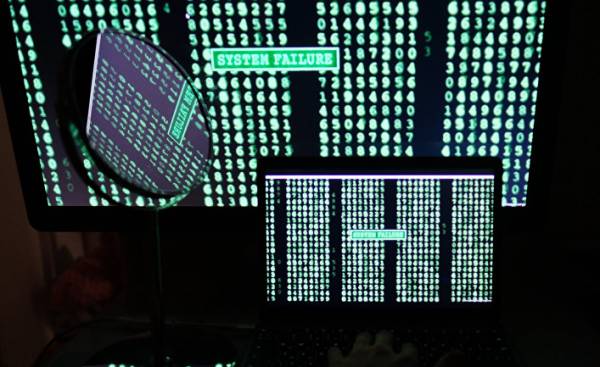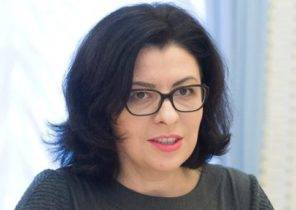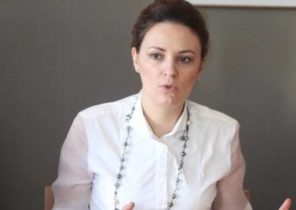
BERLIN — Germany is worried that may be subjected to cyber-attacks ahead of parliamentary elections in September, after the US and France.
Four months before elections, the results of which German Chancellor Angela Merkel expects to maintain leadership for another term, the Federal office for information security of Germany (BSI) has called on political parties to strengthen computer protection.
The head of the German internal intelligence service last week accused Moscow of collecting a large amount of policy data during the attacks and told the Kremlin to decide to interfere in the elections of 24 September, or not.
German authorities have increased funding for the BSI in the current year will hire another 180 employees. They also extend protection center cyber-attacks and increase the exchange of data with private companies. The government is also considering to amend legislation that will allow in the case of large-scale cyber attacks to retaliate in the form of destroying the enemy server.
Despite increased vigilance, more than a dozen experts in the field of cyber security, German legislators and government officials polled by Reuters, say that the leaders of the most influential European countries will face a serious threat in case of an attack similar to the one being experienced by the candidate in US presidents from Democratic party Hillary Clinton and French presidential candidate Emmanuel macron, email which has been hijacked.
Researchers in the field of security and U.S. officials believe that the attack during the American election was the Russian hackers, and warned Berlin that Moscow is now targeting Germany. Investigators are still establishing who was behind the email hacking Makron.
In particular, the German authorities are worried that the September elections can leak emails obtained by hackers in 2015 due to cyber attacks on the country’s Parliament. Two sources familiar with the situation said that one of the compromised accounts belong Merkel, however, its main operating account had not been hacked.
According to one source, the Secretary-General of the Merkel-led Christian democratic Union of Germany (CDU) Peter Tauber was attacked for extortion purposes, which uses viruses, providing access to computer data and forcing users to pay the hackers to regain access to your device.
“Digital technologies have surpassed. Let’s not kid ourselves. Despite all the assurances about increased security, Germany is not really prepared for what awaits her,” said Dirk Arendt, the country-based employee of the Israeli company Check Point Software Technologies, which deals with cyber security.
SISYPHEAN TASK
Government and party officials declined to say whose account is affected in 2015.
BSI believes that Merkel and her conservative CDU party are the target of attacks APT 28, Russian hacker group, which American officials accused of hacking into email Clinton.
The Agency reported that APT 28, also known as Pawn Storm and Fancy Bear, was behind the cyber attack on German Parliament in 2015, as well as for two attacks on the CDU in 2016.
The company-software developer of cybersecurity for Trend Micro said that in March and April, the group attacked the research centers of the CDU and the Social democratic party of Germany, part of the coalition government of Merkel. Trend Micro added that the target groups also became macron.
Moscow denies involvement in the attacks, saying that never interferes in the internal Affairs of other countries. A Kremlin spokesman said he did not know who was behind APT 28.
 © RIA Novosti, Natalia Seliverstova | go to fotoreceptorilor technology
© RIA Novosti, Natalia Seliverstova | go to fotoreceptorilor technology
However, U.S. and German officials say the relationship is obvious. The head of the German counterintelligence service BfV, Hans-Georg Maassen last week said that the Russian organized cyber attacks and operations to influence to destabilize German society. And although Germany has strengthened the protection gaps, he added.
“I am reminded of Sisyphus, who repeatedly run the stone up the mountain, but was faced with the inevitable fate,” said he, referring to the Greek myth symbolizing the futile effort.
During the meeting with Merkel in Sochi last week, Russia’s President Vladimir Putin has called the accusations against Russia in cyber attacks related to the presidential elections in the United States, rumors.
However, U.S. and European officials said Moscow wants to undermine faith in Western democracy and to undermine the unity of Europe.
“The goal of Putin in the short term is to weaken the European consensus on the issue of sanctions against Russia,” said Hans-Peter UHL, the legal adviser to the conservative bloc of Merkel in Parliament.
“The goal in the long term is to split the EU and to ensure the victory of Russian values in the battle against the West.”
A Kremlin spokesman called those accusations a blatant lie.
WAR ON SEVERAL FRONTS
The German Parliament has strengthened measures to protect after 2015, asking Deutsche Telekom to modify its systems FOR providing 3 000 administrative staff to go on courses cyber security, said the representative of the Bundestag Ernst Hebeker.
However, a private company secunet in February conducted an independent, confidential assessment, informing the legislators about the many vulnerable areas, including “uncontrolled use” officials of mobile phones and tablets that are not under centralized supervision, said several sources familiar with the report.
There is no ban on USB drives that may be infected with malware, they quoted the report.
“We do not have enough protection for the servers of the Bundestag, which stores confidential documents,” said August Hanning, the former head of the Federal intelligence service (BND), Germany August Hanning.
BSI now teaches cyber security of legislators, representatives of political parties and their research centres.
However, due to the strict separation of powers in Germany, the Agency can only give recommendations to the Parliament, without the authority to force him to act.
“This is how to teach road safety. We say: “Please do not cross the road at a red light.” But people decide to listen or not,” said Reiter, the President of BSI Arne Senbon.
Berlin is also taking action against so-called false news. The focus of the authorities — about three million Germans with Russian roots, which, officials fear, may also be affected by the Pro-Russian propaganda. This concern intensified after an unexpected protests in January 2016, provoked by false reports about the alleged rape of a migrant in Berlin, 13-year-old German of Russian origin.
Thomas Kruger, head of the German Agency BpB engaged in civic education, in March held a meeting with 250 leading representatives of cyber communities to improve awareness of the issue.
“We just want to talk openly about the problem and to make sure that as many people as possible learn to think critically”, he said.
Senior Vice President of the Washington-based Center for strategic and international studies, Jim Lewis said that Russia is holding compromising material to a critical moment.
“That’s what unpredictable: could Russia in 2015 to find something that I can use on the background of the approaching elections?” he said.
“In August I really started to get nervous”.







